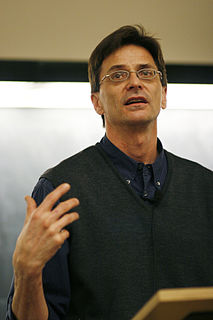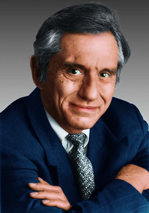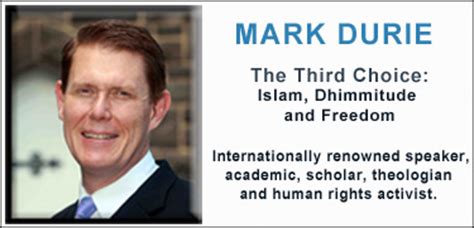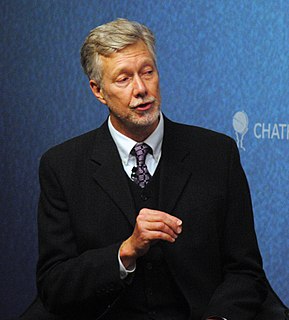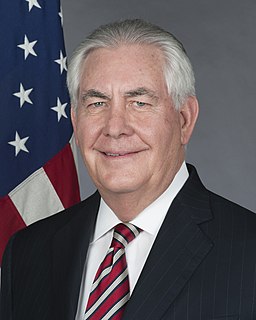A Quote by Joshua Oppenheimer
I think, if you're in the United States, we've seen people trying to speak out in different ways and trying to make themselves heard about the United States' failure to move on generationally, given the long-festering wound of our history around race.
Related Quotes
In the Islamic world, the U.S. is seen in two quite different ways. One view recognizes what an extraordinary country the U.S. is.The other view is of the official United States, the United States of armies and interventions. The United States that in 1953 overthrew the nationalist government of Mossadegh in Iran and brought back the shah. The United States that has been involved first in the Gulf War and then in the tremendously damaging sanctions against Iraqi civilians. The United States that is the supporter of Israel against the Palestinians.
The United States is a society in which people not only can get by without knowing much about the wider world but are systematically encouraged not to think independently or critically, and instead to accept the mythology of the United States as a benevolent, misunderstood giant as it lumbers around the world trying to do good.
We know what our policy is regarding the territory of Israel, Kosovo, Bosnia, Macedonia and even Nagorno-Karabakh. What is our policy regarding the territory of the United States? No nation in history has ever been as willing to accommodate those who would dismember it as has the United States of America. Trying to get a straight pro-U. S. comment out of a U.S. elected official is like trying to nail a custard pie to the side of a barn.
We only have one penal code in the United States, and it applies in every single state, every city, no matter who is there. This is part of the fear mongering, that has gripped the United States, the notion that we need to pass a law forbidding the institution of a foreign Law in the United States when it is forbidden by the constitutions is yet another example of targeting Muslim communities because they are seen as different, or exceptional in other ways.
In the Islamic world, the U.S. is seen in two quite different ways. One view recognizes what an extraordinary country the U.S. is. Every Arab or Muslim that I know is tremendously interested in the United States. Many of them send their children here for education. Many of them come here for vacations. They do business here or get their training here. The other view is of the official United States, the United States of armies and interventions.
Obviously, the United States' own founding principles are self-determination. And I think what the United States and our allies want to do is to enable the Syrian people to make that determination. You know, we've seen what violent regime change looks like in Libya and - and the kind of chaos that can be unleashed.
I think the President's decision to withdraw the United States, to keep a campaign promise in Iraq, without leaving a stay-behind force was a mistake, and I hear that from veterans in Wyoming and from parents who lost children fighting in Iraq. We're seeing it, though, around the world. When we, the United States leads a vacuum anywhere, that emboldens others to go in, when there is no sense of deterrence by the United States that lets bad actors move and fill the void.
The ideals and the values of the United States inspired the entire world. I don't think any of us can say that our standing in the world now, the way children around the world look at the United States, is the same. And part of what we need to do is to send a message to the world that we are going to invest in issues like education, we are going to invest in issues that relate to how ordinary people are able to live out their dreams. And that is something that I'm going to be committed to as president of the United States.
Currently, the United States has troops in dozens of countries and is actively fighting in Iraq, Syria, Libya, and Yemen (with the occasional drone strike in Pakistan). In addition, the United States is pledged to defend 28 countries in NATO. It is unwise to expand the monetary and military obligations of the United States given the burden of our $20 trillion debt.
There is a sense in which the United States ambassador speaks to the United States, as well as for the United States. I have always seen my role as a thermostat rather than a thermometer. So I'm going to be actively working... for my own concerns. I have always had people advise me on what to say, but never on what not to say.
There is a sense in which the United States Ambassador speaks to the United States, as well as for the United States. I have always seen my role as a thermostat, rather than a thermometer. So I'm going to be actively working... for my own concerns. I have always had people advise me on what to say, but never on what not to say.


